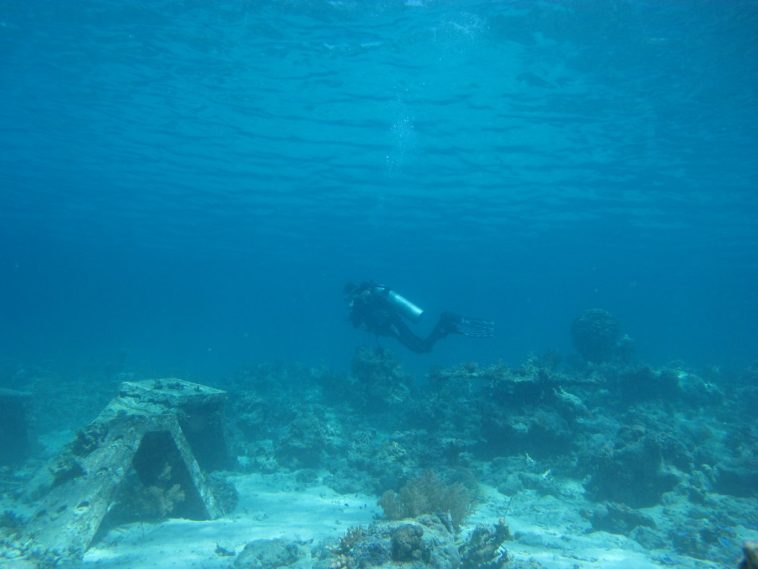Are you looking for an exciting and rewarding career that involves working underwater? An underwater welding school may be the perfect fit for you! Here, we’ll discuss what to expect from a program in this field, including the skills you’ll need, the certifications required, and how long it takes to become an expert. We’ll also explore potential job opportunities available upon completion of your coursework. Dive into our comprehensive guide today so that you can take the plunge with confidence!
Page Contents
Advantages of Becoming an Underwater Welder
Underwater welding is a highly sought after career path due to its unique environment and rewarding opportunities. With this job, you have the chance to travel around the world and work on different projects – all while being submerged in some of Earth’s most beautiful locations. The advantages that come with becoming an underwater welder are plentiful; here are just a few:
First, underwater welders get to experience incredible views while they’re working. They’ll witness vibrant coral reefs, exotic fish species, marine life up close and personal – it’s like having your own aquarium! Not only will these sights inspire creativity and awe but they can also be incredibly calming when there’s down time between tasks.
Second, no two days look the same for an underwater welder which means each day brings new challenges and rewards. You can find yourself building ships one week then repairing pipelines or drilling rigs another – so you never feel bored or stuck in a rut. It’s also extremely satisfying knowing that your hard work is making waves (literally!) as it helps maintain safe maritime operations worldwide.
Finally, since underwater welders often need certifications from various organisations such as The American Welding Society (AWS), their skillset commands high pay rates compared to other professions within the industry; This makes it possible for them to pursue financial security without sacrificing excitement or adventure!
For those looking for something out of the ordinary – consider taking the plunge into becoming an underwater welder today!
Prerequisites for Underwater Welding Programs
Underwater welding has become an increasingly popular career option for those with a passion for the sea. It requires skill, precision, and knowledge of safety protocols to ensure successful projects are completed efficiently. To be eligible to enroll in underwater welding programs, there are several prerequisites that have to be met first.
The main prerequisite is certification from the American Welding Society (AWS). This certification shows employers that applicants meet industry standards when it comes to welding skills and safety regulations. Completing courses such as blueprint reading, shop mathematics and physics will help prepare candidates for this exam. Students must also pass a written test before they can proceed with their training program.
In addition to AWS certification, potential students must possess valid commercial diving certifications or licenses from accredited organizations like Association of Diving Contractors International (ADCI). These certifications demonstrate an understanding of dive planning procedures and safe practices while under water making them essential qualifications for any underwater welder looking to enter the field professionally.
Other requirements may include:
– A high school diploma or equivalent degree
– Medical clearance from a certified physician
– Physical stamina & mental toughness
– Knowledge/experience in arc cutting/welding techniques
Essential Skills and Training Needed to Become an Underwater Welder
Underwater welding is an exciting and unique career that requires a combination of specialized skills and training. Whether you’re looking to transition into underwater welding from another job or just starting out, you need the right knowledge in order to be successful.
In order to become an underwater welder, aspiring welders must first complete basic welding courses. This involves learning the basics of arc-welding techniques such as Tungsten Inert Gas (TIG) Welding and Shielded Metal Arc Welding (SMAW). Once these fundamentals are mastered, it’s time for more advanced level training in the form of wet welding processes such as Hyperbaric Wet Welding (HWW), which is used on pipelines located at depths greater than 30 feet below sea level.
Further education includes understanding safety regulations mandated by OSHA while working under water, including handling hazardous materials while wearing protective gear designed specifically for this environment. Working with various tools and equipment also requires proper instruction as well as skillful navigation through tight spaces inside tanks or other submerged structures that may cause discomfort due to limited space limitations.
For those interested in becoming a certified underwater welder, additional certifications are available from accredited institutions like American Contractors Educational Services (ACES) which provide certification programs both online and onsite locations throughout the United States. These courses cover topics ranging from commercial diving safety standards to gas tungsten arc welding processes required for different types of jobs encountered during subsea projects. With each area requiring its own set of credentials passing all tests will enable one to gain full certification status through ACES upon completion—allowing them entry into this highly specialized field with confidence they have acquired essential skills needed for any position they may pursue related to their new career choice!
Typical Courses in Underwater Welding School
Underwater welding school can be an exciting and rewarding experience for those interested in the field of underwater welding. Not only does it provide students with the skills needed to become a successful professional, but it also offers them the chance to explore a unique and fascinating career path.
At an underwater welding school, students will learn about the basics of submerged arc welding (SAW) and gas tungsten arc welding (GTAW). During their coursework, they’ll cover topics such as: health and safety principles, different types of welds used in underwater applications, how to handle hazardous materials properly under water, electrical systems basics for submersible equipment operation and maintenance, basic metallurgy concepts related to submerged arc or gas tungsten arc processes. Additionally, they will gain hands-on instruction from experienced professionals on specific aspects of this trade including proper helmet use when working below surface level; assessing environmental conditions; selecting appropriate equipment; setting up correct shielding gases or fluxes; using specialized tools like plasma cutters or grinders; cutting through steel plates efficiently etc.
In addition to learning about the technical side of things at an underwater welding school – such as developing essential skillsets – students may also have ample opportunities for internships which could give them invaluable real-world experience with potential employers. All in all – attending one of these schools can open up many doors within this industry that otherwise would not have been available!
Important Safety Considerations for UW Welders
Welding is an incredibly important skill, one which can be used to create strong and lasting bonds between metal components. With that said, it’s also a dangerous activity if proper safety measures aren’t taken into account. As such, welders at the University of Washington need to consider certain safety guidelines in order to ensure their personal protection as well as the protection of others around them.
When welding on campus or off-site for any university project, UW welders should take precautions by wearing appropriate clothing and protective gear: flame resistant clothing (including long sleeved shirts and pants), steel-toed boots, leather gloves, and face shields with shaded lenses are all required items when engaging in welding activities. In addition to these basic items of apparel, respirator masks should always be worn while welding indoors due to potential hazardous fumes produced during the process itself.
Furthermore, it’s also important for UW welders to follow standard safety procedures before beginning any job – inspect tools beforehand and make sure they are functioning properly; set up a secure workspace free from distractions; read instructions carefully; keep nearby surfaces clear from combustible materials; inform other personnel who may enter the area about what you are doing; use correct posture when operating machinery for maximum control over your workpiece; stay alert throughout each step of the process – if anything doesn’t feel right stop immediately – and lastly double check everything after completion – look over your work one more time before calling it done! Taking these extra steps will guarantee that every job performed is completed safely according to established standards.
Career Options After Completing UW School
Completing the University of Washington School provides its graduates with an abundance of career opportunities. Not only do they possess a wealth of knowledge, but they also receive a prestigious degree that is highly sought after by employers in many industries. Here are some potential paths to explore:
In terms of higher education, there are many options available to those who have completed their schooling at UW. Graduates can consider enrolling in doctoral programs for further research and exploration into their chosen field or apply for teaching positions at universities and colleges around the country. Additionally, there is huge potential for entering into management roles within academia such as becoming department chairs or college administrators.
On the business side, obtaining a degree from UW opens up various doors to private industry professionals such as finance, marketing and engineering fields among others. There are numerous positions available within these areas ranging from entry-level analyst jobs all the way up to executive level directorships across all sectors. Furthermore, graduates may wish to start their own businesses using their acquired skillset or consult independent clients on projects – providing vast opportunity in both cases if successful!
Aside from traditional job markets, completing UW puts one’s name out there amongst notable alumni networks which could prove helpful when networking and looking for job openings elsewhere too. This often overlooked advantage gives students yet another avenue towards personal growth through exposure with likeminded individuals who share similar interests – leading down even more exciting career paths!
Financing Opportunities for UW Education
The University of Washington offers many financial opportunities for prospective and current students. One such example is scholarships, which are awards based on academic merit or other criteria that do not need to be repaid. Scholarships can come from the university, private donors, government programs, or student organizations and may cover tuition expenses as well as housing costs.
In addition to scholarships, loans are another option available at UW for financing education if a student does not have access to enough money upfront to pay for tuition and living expenses. Loans typically require repayment with interest after graduation; however there might be federal loan options with more favorable terms than those offered by private lenders such as banks or credit unions. Loan counselors are available at the Financial Aid office who can help advise students on how best to finance their education through various types of loans including subsidized/unsubsidized federal direct loans, PLUS loans (for parents), and alternative/private loan options.
Other forms of financing include grants which provide funds without any expectation of repayment like scholarships except these usually come from Federal or State governments instead of an institution like UW. Work-study is also another form of aid whereby eligible students work part-time jobs in exchange for payment that goes towards paying educational related expenses while they study at UW. Finally students should also consider applying for tax credits such as the American Opportunity Tax Credit (AOTC) which could reduce their overall income taxes owed up to $2,500 per year depending on individual circumstances.
Wrapping it Up!
Underwater welding is a unique and exciting career path that can take you around the world. You’ll need to have some prerequisite skills, such as basic welding knowledge and experience with water-related activities. Additionally, there are several courses available in underwater welding school to give you the essential skills required for professional work in this field. Safety is always priority number one when it comes to underwater welding, so make sure to stay up-to-date on all safety protocols and procedures. Once you’ve completed your UW schooling, there are plenty of job opportunities both locally and abroad waiting for you! Finally, don’t forget about financing options available from various sources if needed – just be sure to do your research before committing!
underwater welder salary new york
Frequently Asked Questions!
Q1: What qualifications are needed to become an underwater welder?
A1: To be accepted into a welding school that offers underwater welding courses, you will need at least a high school diploma or equivalent. Additionally, prior experience in either construction or manufacturing is preferred by most schools and employers in the field.
Q2: How long does it take to complete underwater welder training?
A2: The length of time required for underwater welder training typically ranges from two weeks to three months depending on the institution offering the course. For those individuals who already have some welding experience, some programs may offer accelerated courses allowing them to finish within two weeks or less.
Q3: Are there safety considerations when working as an underwater welder?
A3: Yes, safety should always be top priority for anyone considering this line of work. It is important for any aspiring welders to understand that they must be properly trained and certified before attempting any type of complex welding procedure beneath the surface of water. In addition, divers must also adhere strictly with all safety protocols while working in these hazardous environments such as wearing protective gear and monitoring their air supply levels constantly during dives.
Q4: Is certification necessary if I want to pursue a career as an underwater welder?
A4: Certification is highly recommended if you would like to pursue a career in this field due its competitive nature where employers often prefer applicants with formal qualifications over those without them. Certificates can range from basic entry-level certifications offered by vocational colleges through advanced professional certifications awarded by specialized organizations such as Underwater Welding Association (UWA).
Q5 : What type of salary can I expect after becoming an experienced underwater welder? A5 : After finishing your schooling and gaining extensive experience on the job , salaries for experienced welders usually start around $50K per year but can significantly increase depending on location, specialization and other factors . With additional certifications , many welders report earning up six figure salaries annually .




